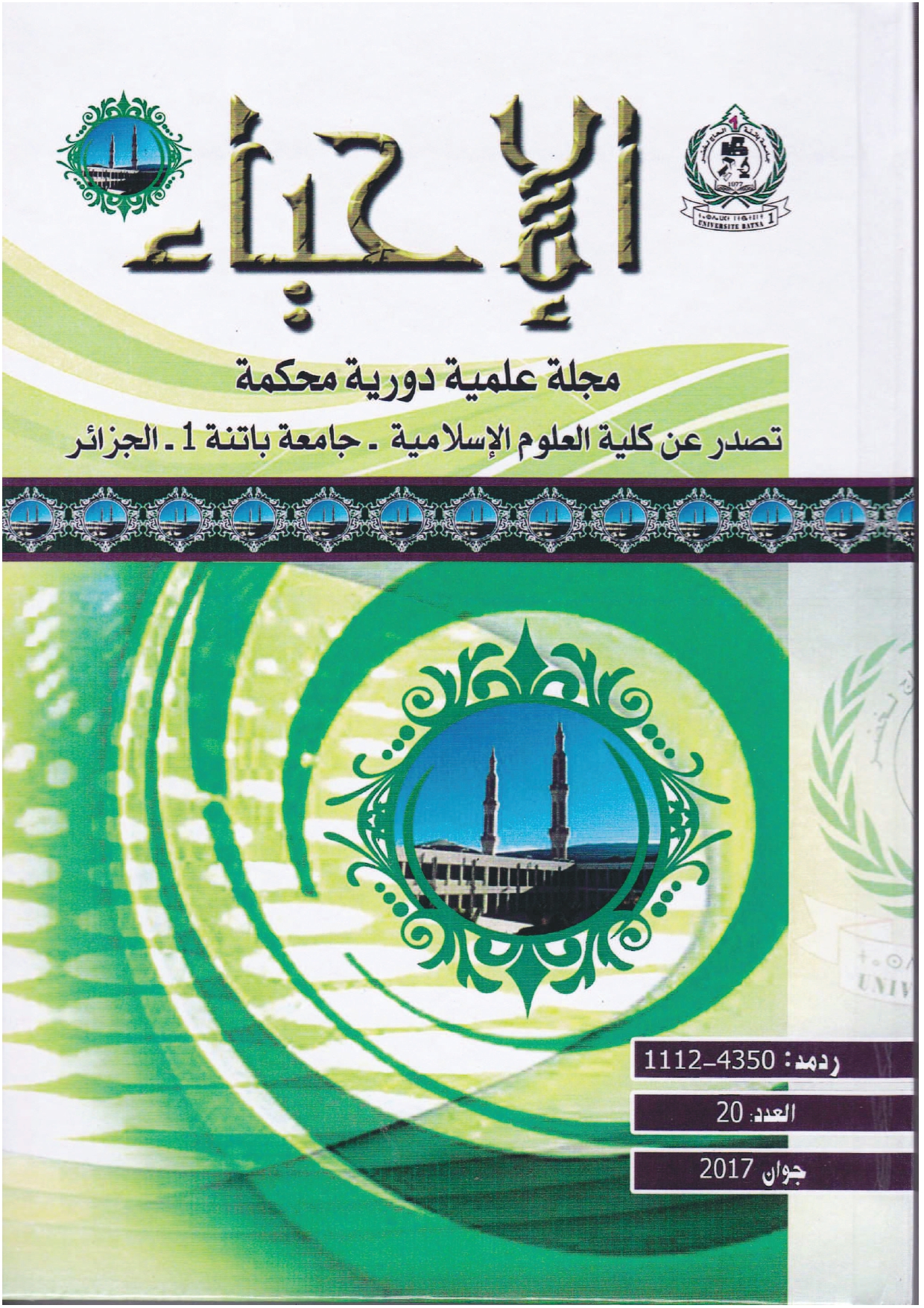منهج الاستدلال على الحكم في النازلة عند الفقهاء الشناقطة
DOI:
https://doi.org/10.59791/ihy.v17i1.4211Keywords:
الاستدلال, منهج الاستدلال, الحكم في النازلة, الفقهاء الشناقطةAbstract
Judging the calamity according to the Chinguetti jurists; using the Reasoning methodology. This research is based on explaining the Maliki school’s fundamentals and rules, which is based on them; especially those characterized by. These ones allow the Mufti to observe matters attentively as far as its nature is concerned, to show the amplitude in our doctrine for independent reasoning and answering the new occurrences and calamities. These principles are the absolute interests (public interests) and the prohibition of what may lead to committing sins, and take in consideration customs and traditions and judge the legal objectives, targets and necessities and their assortments. Therefore, I’ve worked and rankled in the Chinguetti jurisprudential fact and the confirmation of these reasoning and solutions that have been given by the jurists of this country; thanks to these principles that lead to confront their reasoning with the fact of the country and accord with it. This deductive methodology, we want through this research to show its characteristics that vary from flexibility, simplicity and its great legislative value; whether in its rise which is based on a lot of detailed, practicable judgments or in its absolute domination in deriving, mending and adapting judgments on the absolute and contained term; general and allocation one. I have divided this research into two themes: in the first one I have talked about the nature of the Chinguetti Reasoning methodology and its rank and influence while the second was about the reasoning rules as far as its characteristics, tokens and some use’ samples.
Downloads
Published
How to Cite
Issue
Section
License

This work is licensed under a Creative Commons Attribution-NonCommercial-NoDerivatives 4.0 International License.





